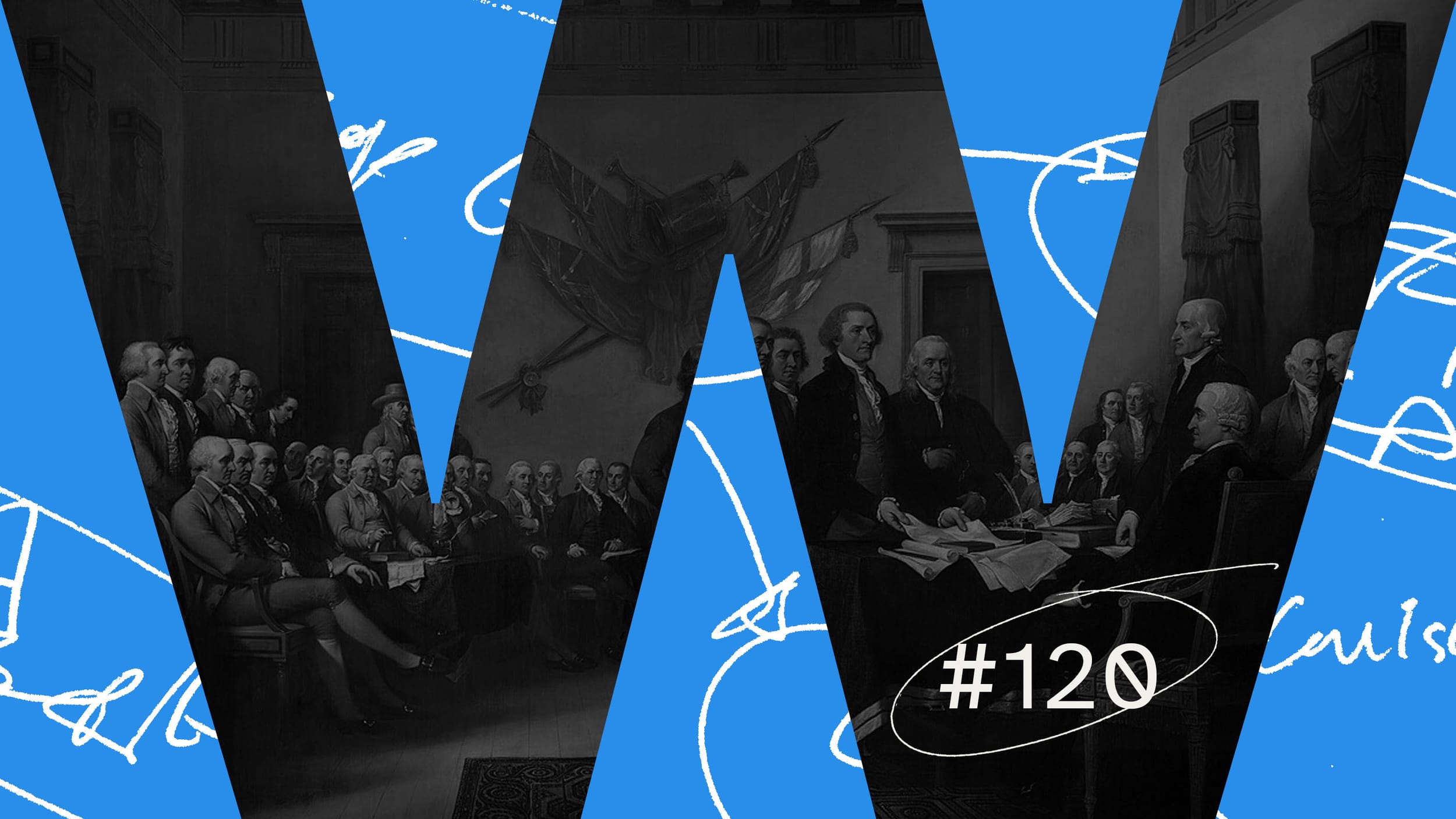
Happy 4th! This Brazen Weekender drops early with a fresh take on McCullough’s 1776, a rare Iran-insider interview on nuclear tensions, and the launch of our multi-month Havana Syndrome expedition—complete with interactive science guide and limited-edition merch. Join the hunt.
Hello and welcome to this weekend’s edition of Brazen Weekender. For our American friends, Happy 4th of July. In honor of Independence Day, I'm sharing below my favorite book about the Revolutionary War, 1776 by David McCullough. Publishing a bit early this weekend.

And a reminder, Weekender is now for our paid subscribers. Join now and support our live investigations, "Expeditions," like the Unauthorized Rich List and much more coming soon.
-- Bradley Hope
🔥 NEW DROP ALERT 🔥
Only 25 each of these tees exist — designed for this Expedition in both maroon and white! Snag yours before they’re gone!
Use code HAVANSYNDROME for 10% off your entire order at shop.brazen.fm
American history is one of those topics you think you know, but later realize you know nothing about. After watching Hamilton for the first time many years ago, I felt sufficiently intrigued to dig deeper into the Revolutionary War and I picked up what might seem at first like a turgid history book 1776 by David McCullough. It was my first time reading a book from him, but it instantly converted me into a loyal reader.
What I loved the most about the book—and the history it depicts—is just how fragile the whole American Revolution was. They were outnumbered, completely bumbling in almost every way, but full of spit and fury. McCullough captures this sense of contingency with remarkable clarity. These weren’t the marble statues that we now reflect upon—they were ornery farmers, printers, and merchants, many of them half-starving, freezing in tents, poorly trained, and constantly on the edge of total collapse. Washington himself comes across not as a flawless leader, but as a man constantly doubting, learning on the fly, and somehow pushing the whole thing forward through sheer force of will.
What makes 1776 so gripping is that it strips away the inevitability we often retroactively assign to history. It reminds you that victory was never assured. The revolution could have failed at a dozen moments—if fog hadn’t rolled in during the retreat from Brooklyn, if British generals had pressed a little harder (or had more of a sense of mission), if morale had broken at just the wrong time. These details, told with McCullough’s narrative grace, make you appreciate not just the courage of the revolutionaries, but the randomness of survival and the weight of leadership under impossible odds.
Reading it gave me a deeper respect not just for American history, but for the difference between myth and memory—how messy, chaotic, and uncertain real turning points are. It’s a book I still think about when I’m considering any historical narrative. Who’s the hero? Who was afraid? What nearly went wrong?
Some of my favorite parts of 1776 weren’t even about Washington or the big moments you read about in textbooks. It was the side characters—men like Nathanael Greene and Henry Knox—who stuck with me the most.
 Related Posts
Related Posts